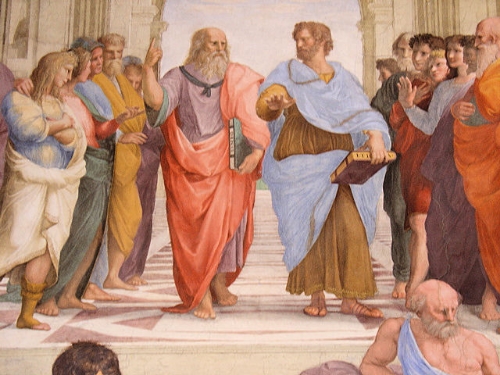Imagine two outer actions, which would appear exactly the same to an onlooker. In one case, the act springs from a routine in a job that's long lost its luster. And if we could walk into that office and ask the guy involved in that action, he might tell us that he was excited about his job at first. It was his big break. It was an entry level job, but in a big company. The building was beautiful. His colleagues were smart and ambitious. He seemed to have his foot firmly in the door of greatness. But the culture around him soon became clear. It was all about the sale, all about the money. Profits were the air they breathed. But breathing that air, and only that, every day over time, had taken a toll. He had lost the true excitement of the early days. The enchantment was gone. It had gradually become a matter of pressure, and routine. He now still kept up the pace, and all relevant appearances, and did the work, but it was almost automatic, and without any inner soul.
The other guy, across town, the one performing apparently the same outer action - say, reaching for a phone, or filling out a form, or making an entry into his computer - lives and works each day with a strong sense of purpose, and a real passion for what he's doing. He's with great people who think and feel the same way. They have a camaraderie and a sense of mission for the work they do. They're building something new together. They're making a difference.
I submit that the two identical looking actions of these different individuals are really not the same at all. One of the actions is ennobled by the inner state from which it springs. The other is not. And this is not some flaky mumbo-jumbo mysticism. It's a difference that makes a difference. One action embodies something almost magical, and it will, eventually, if not right away, have seriously different results, on many dimensions, regardless of how small an act it is.
I've come to think that it's the inner that's always definitive of the outer, in everything. When the spirit is right, the enterprise is just different, and vastly more. Plato distinguished clearly between appearance and reality. We should all do so, as well. No matter what the appearances might be, it's what bubbles up inside us, what animates us in our minds and hearts, that makes all the difference.
Inner purpose, real passion, and the sort of commitment that embodies a spark of nobility simply brings something different into the world. Don't you think?
What will animate your actions today?












































